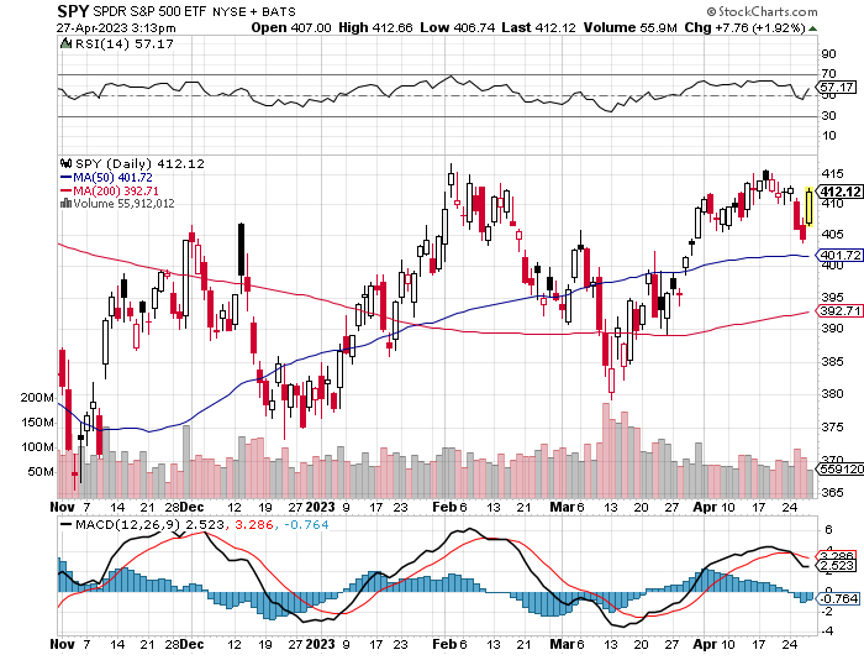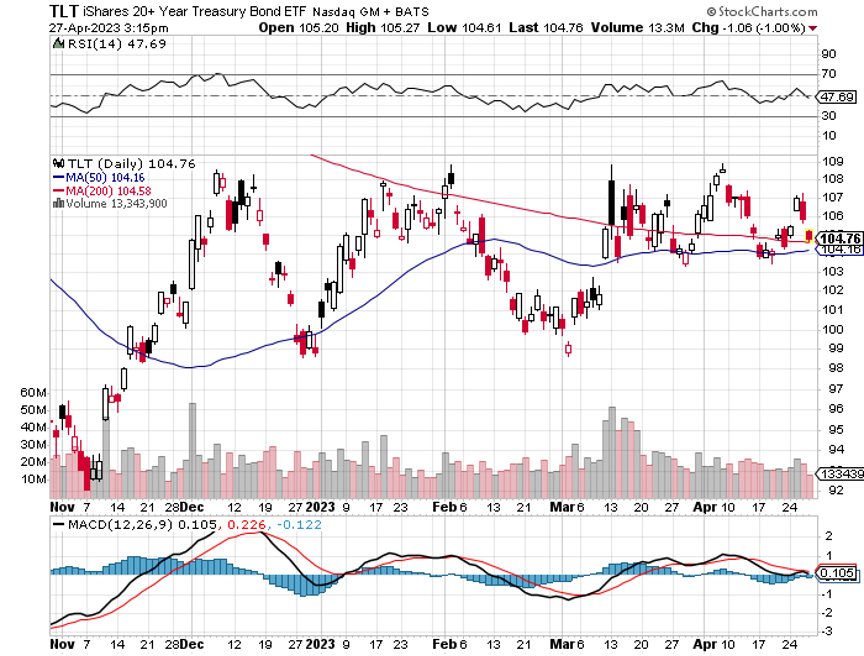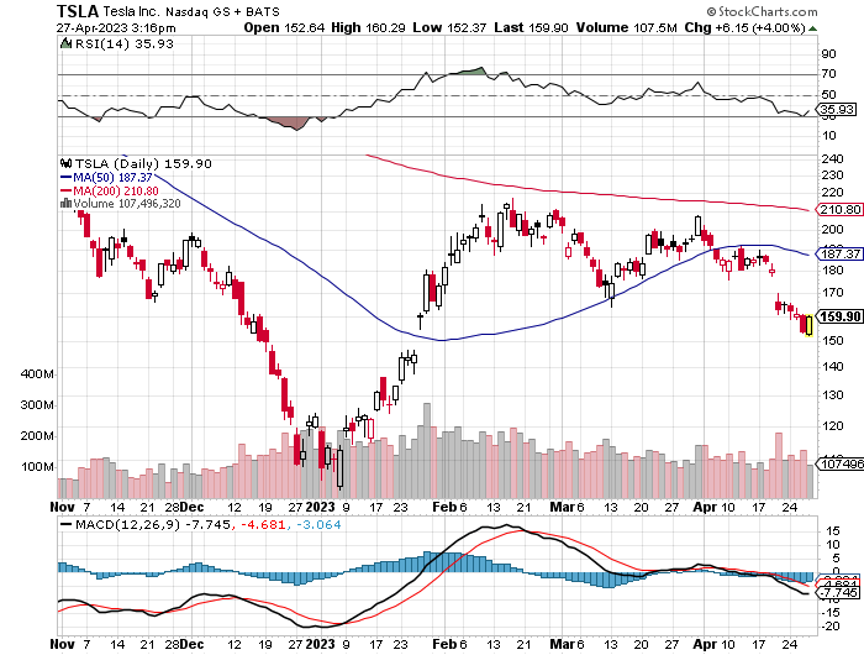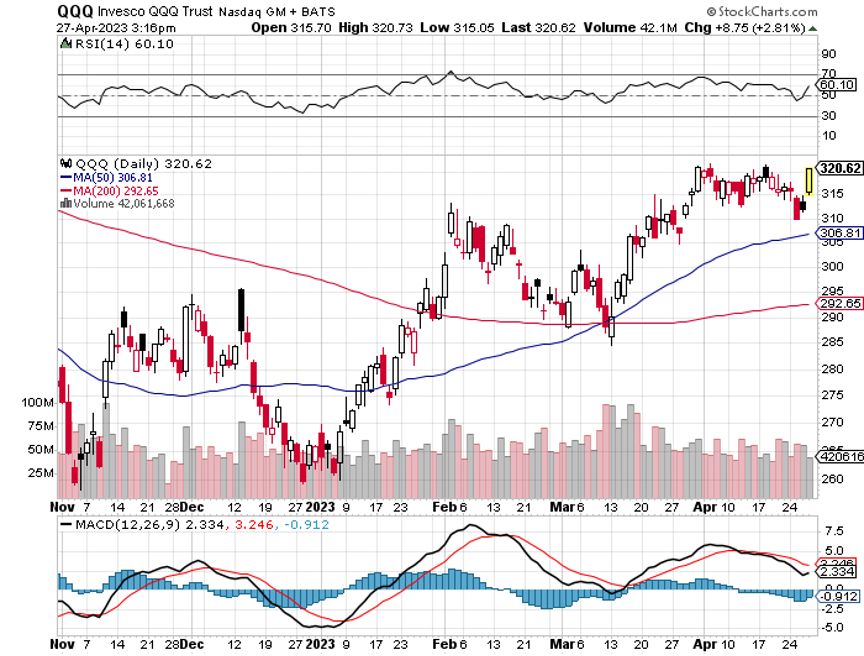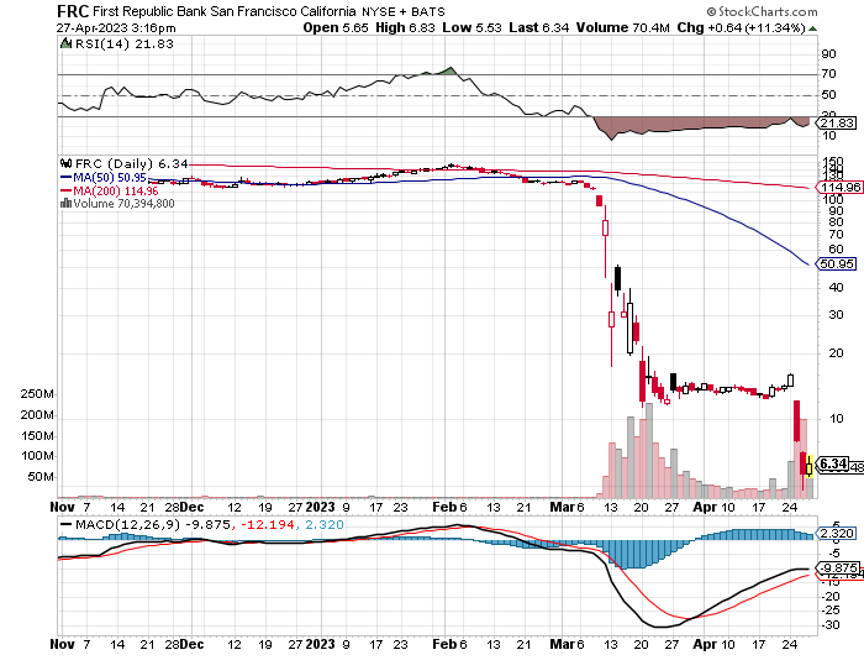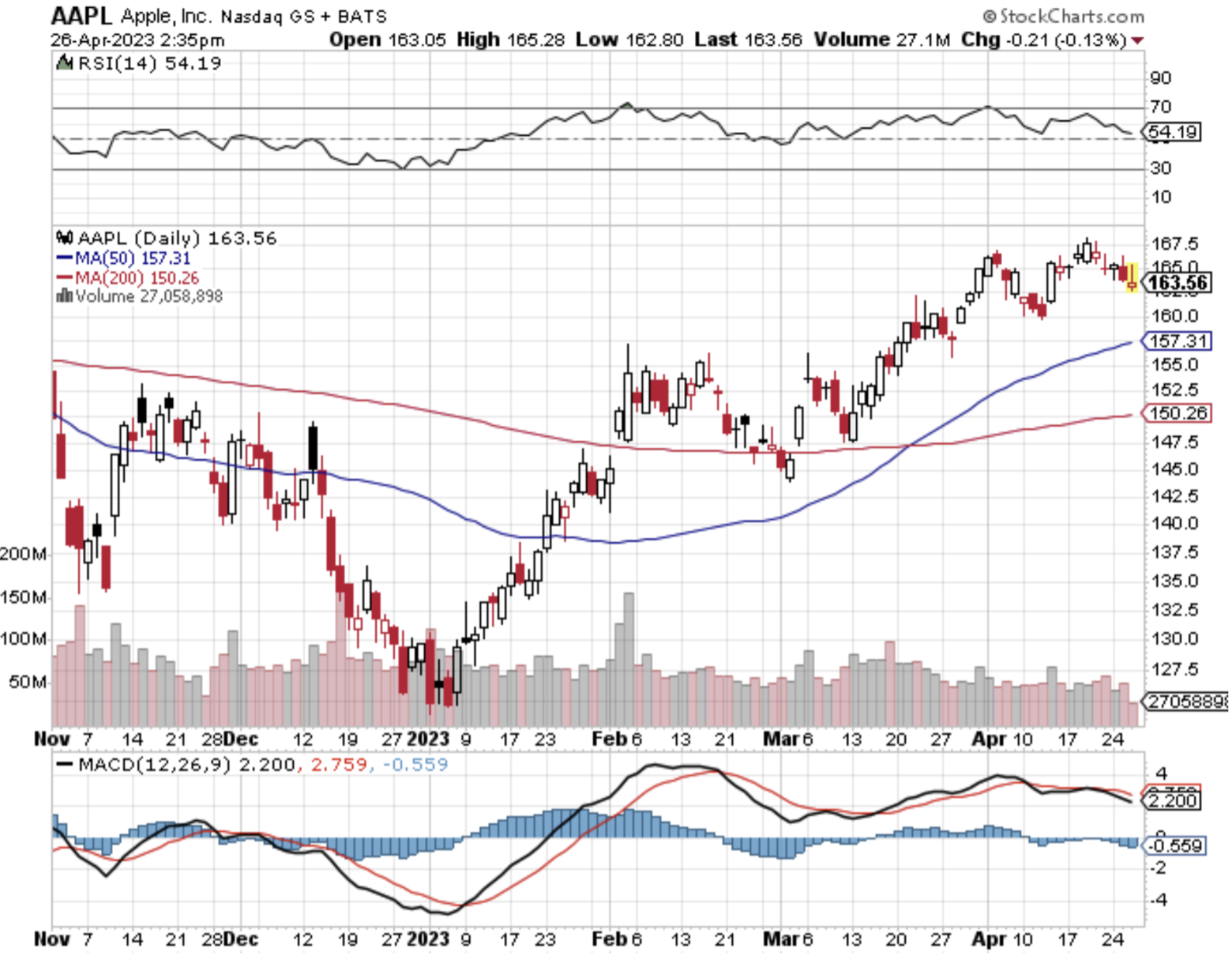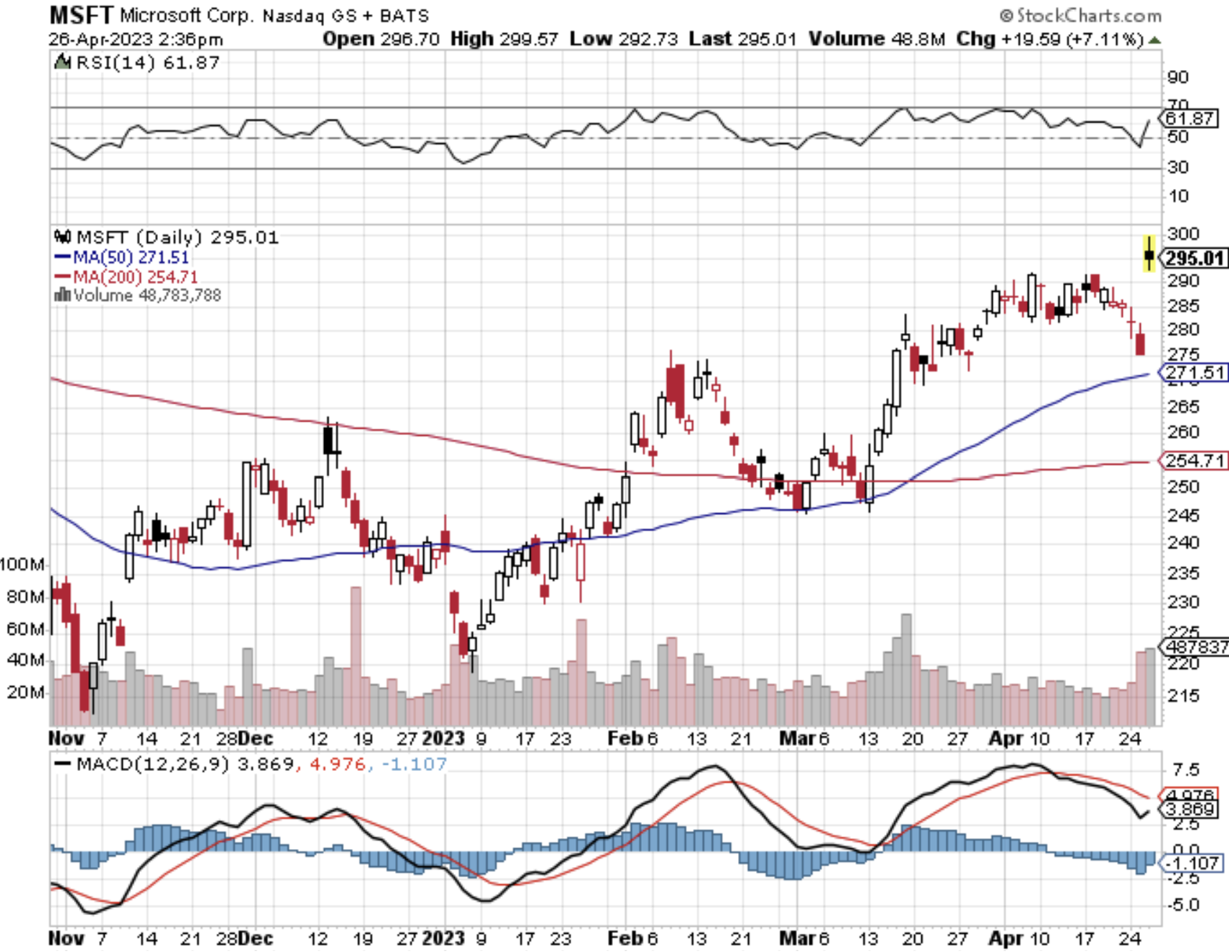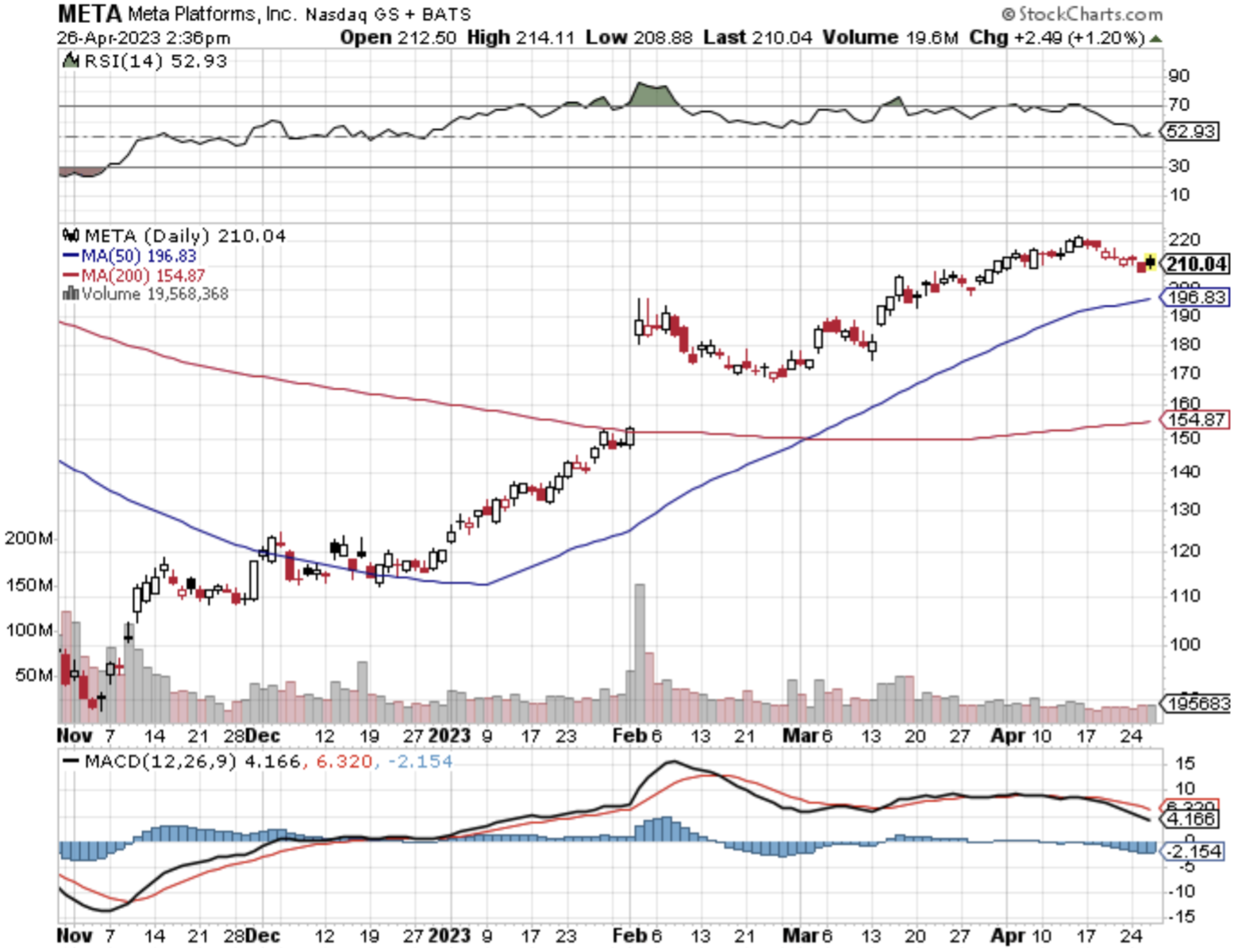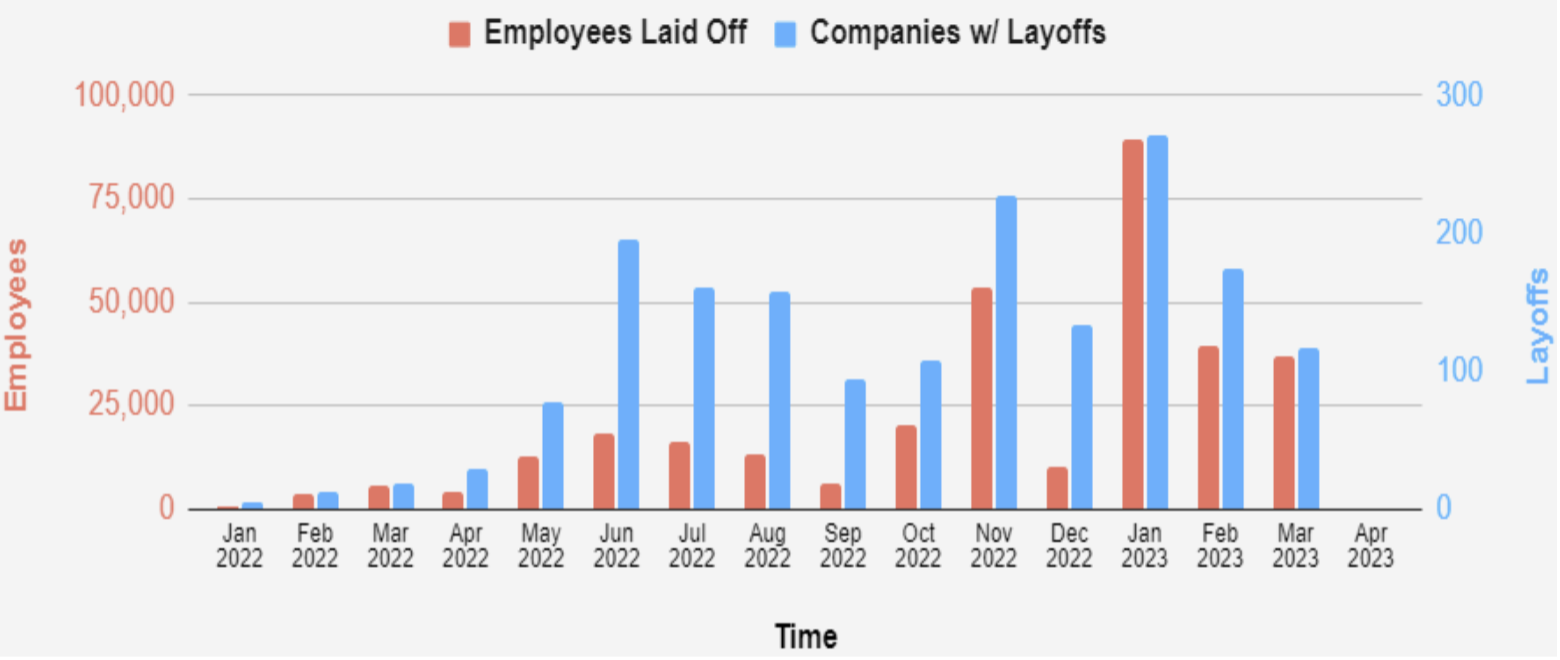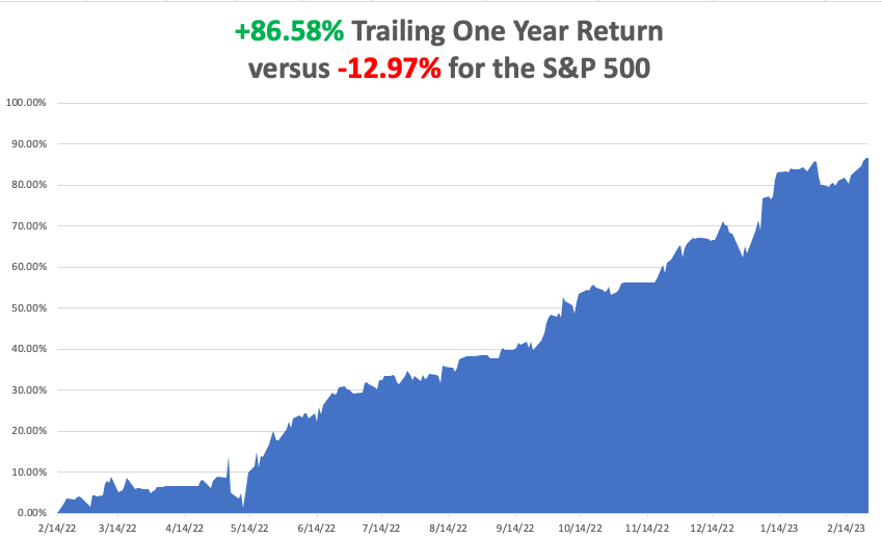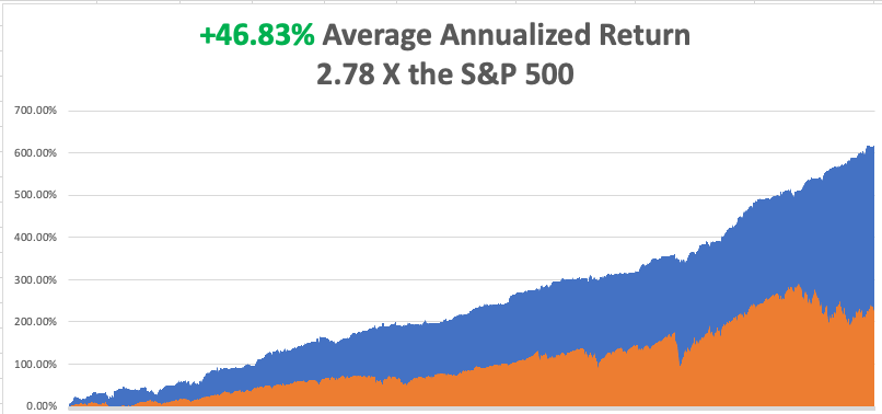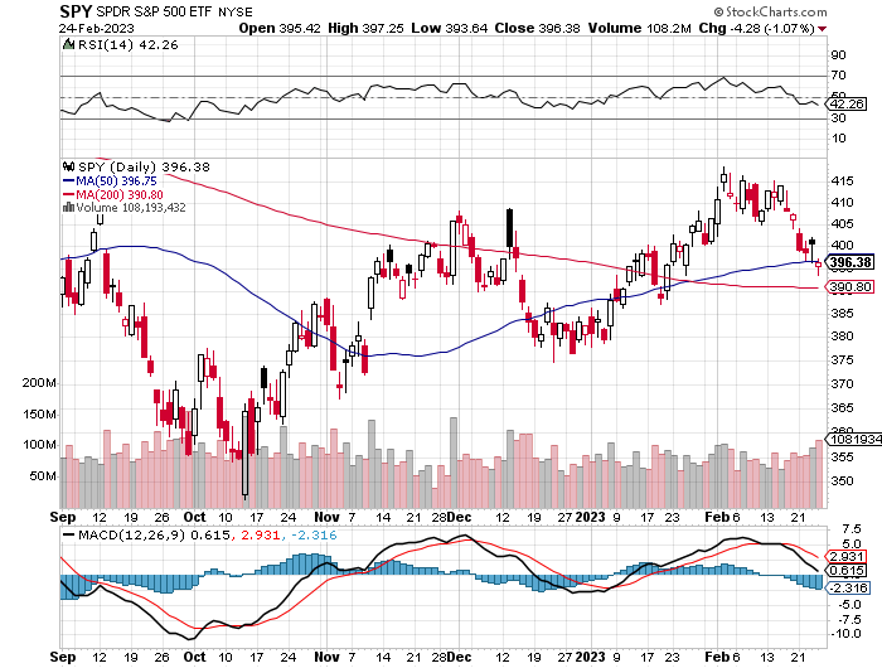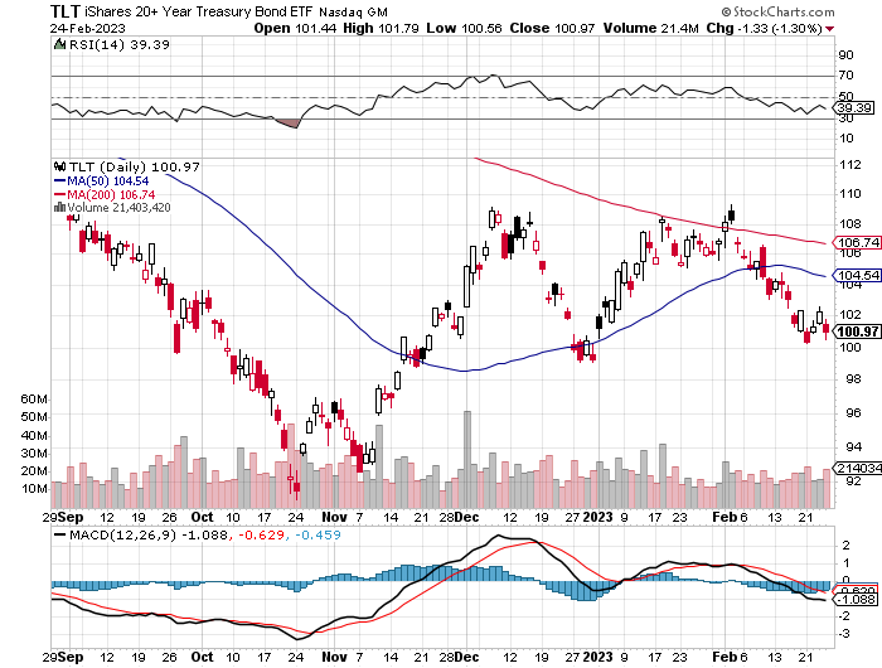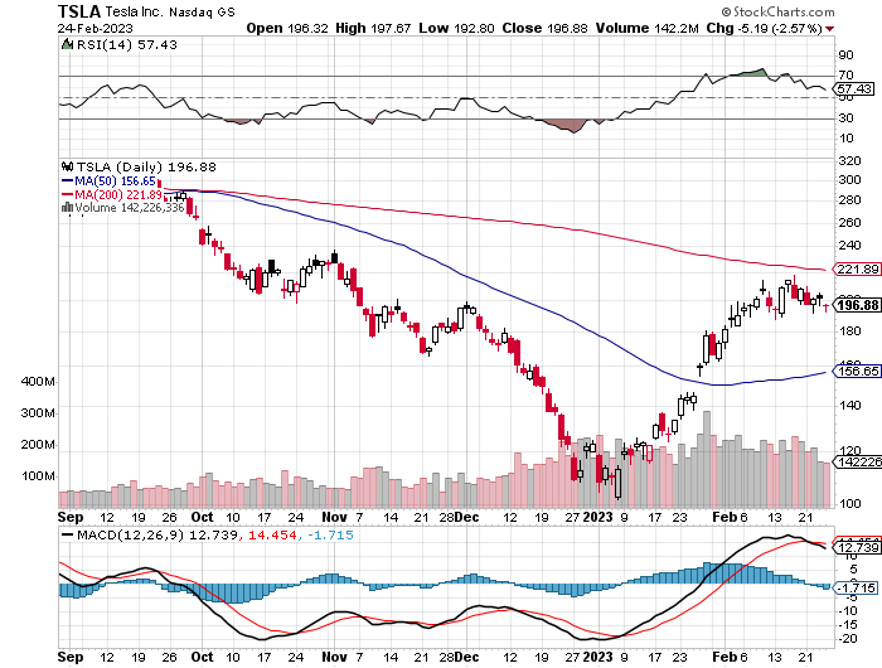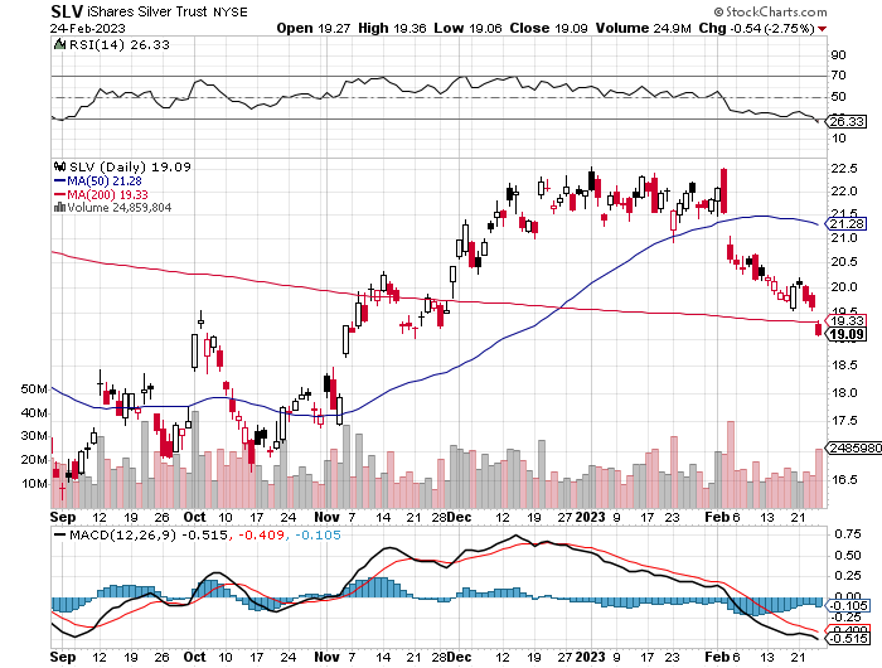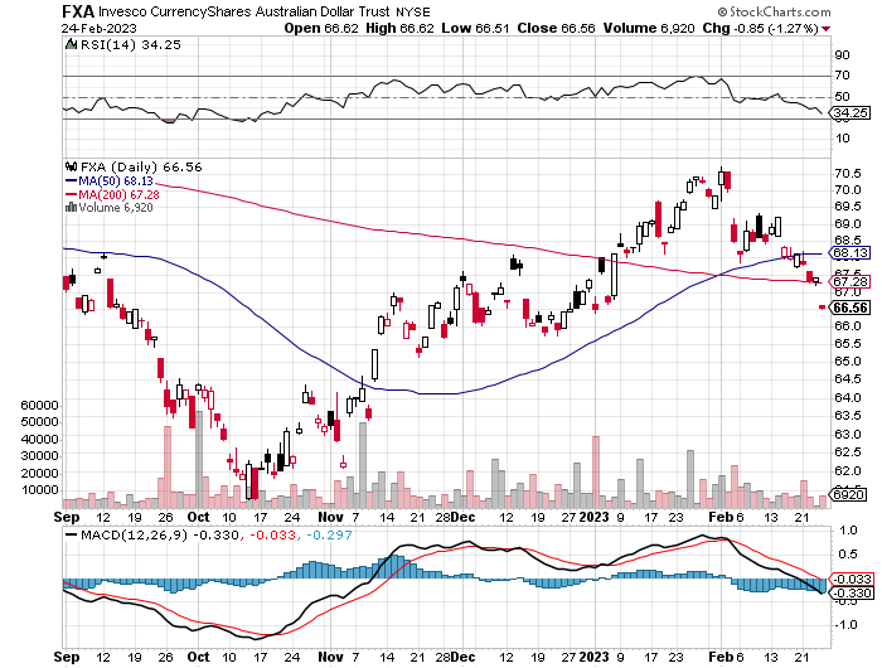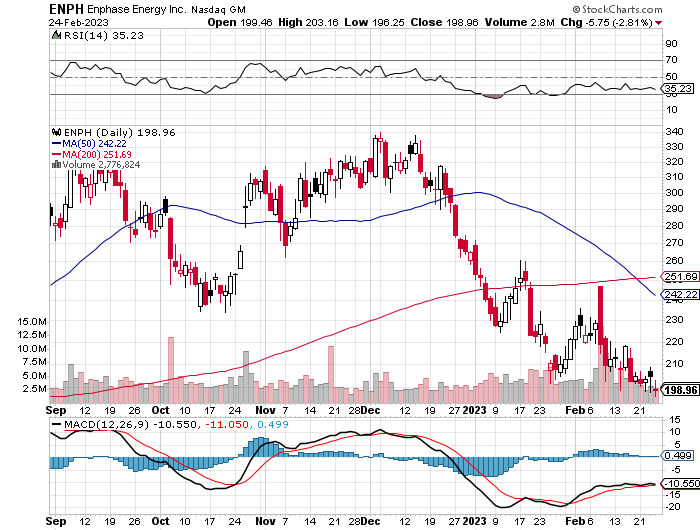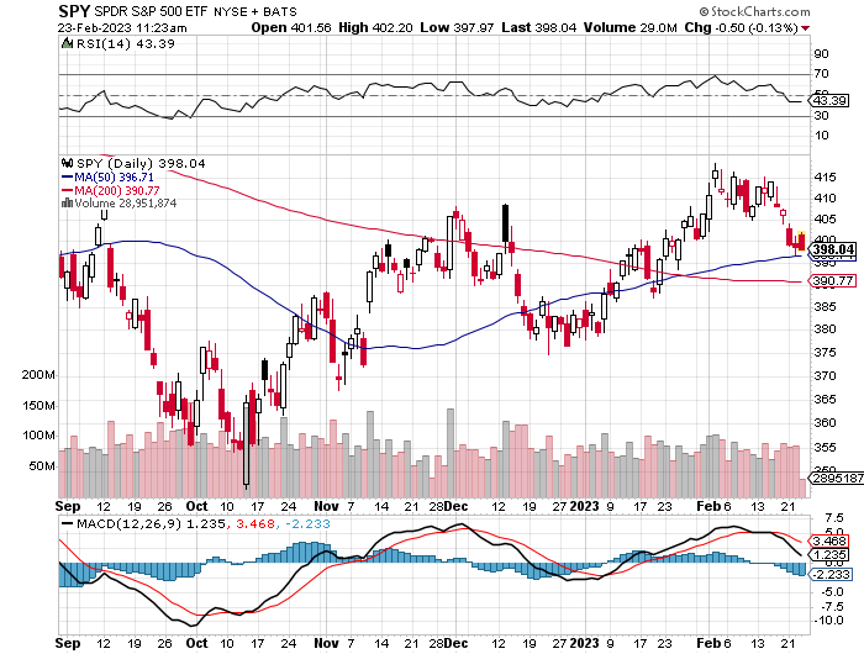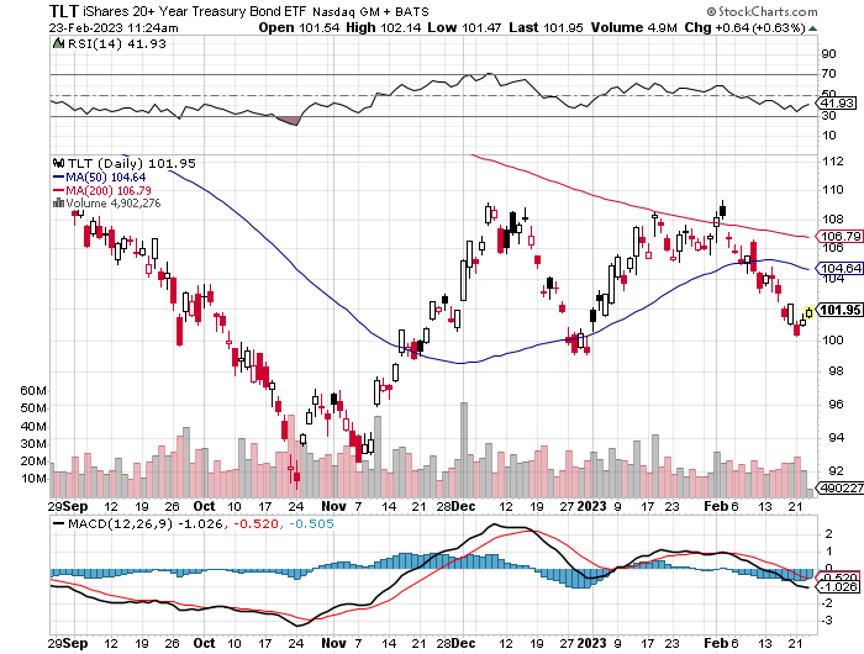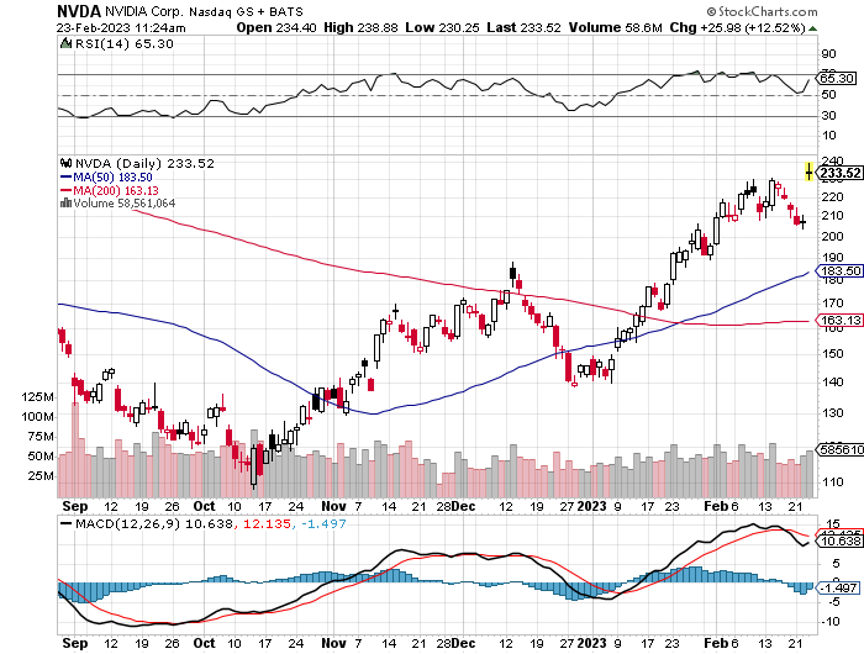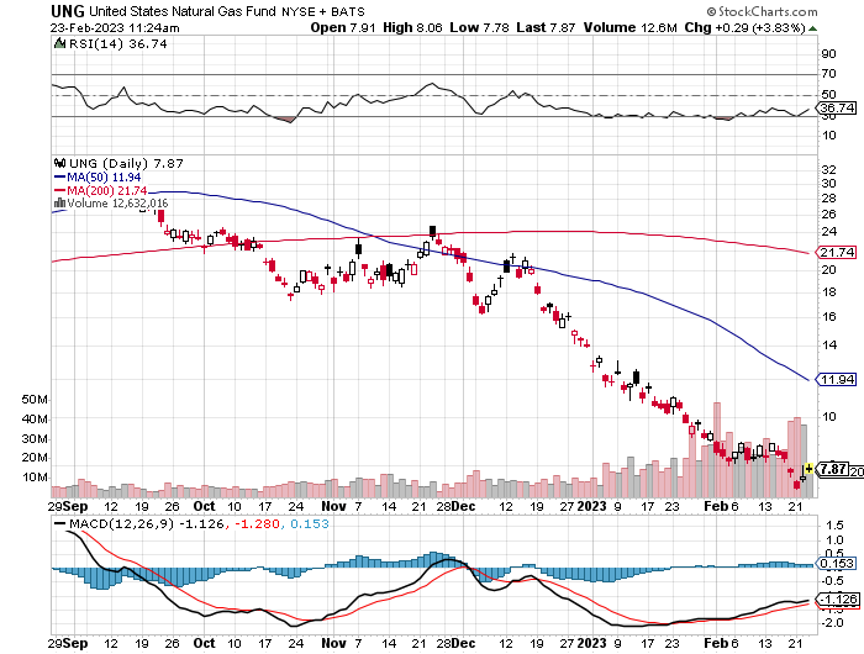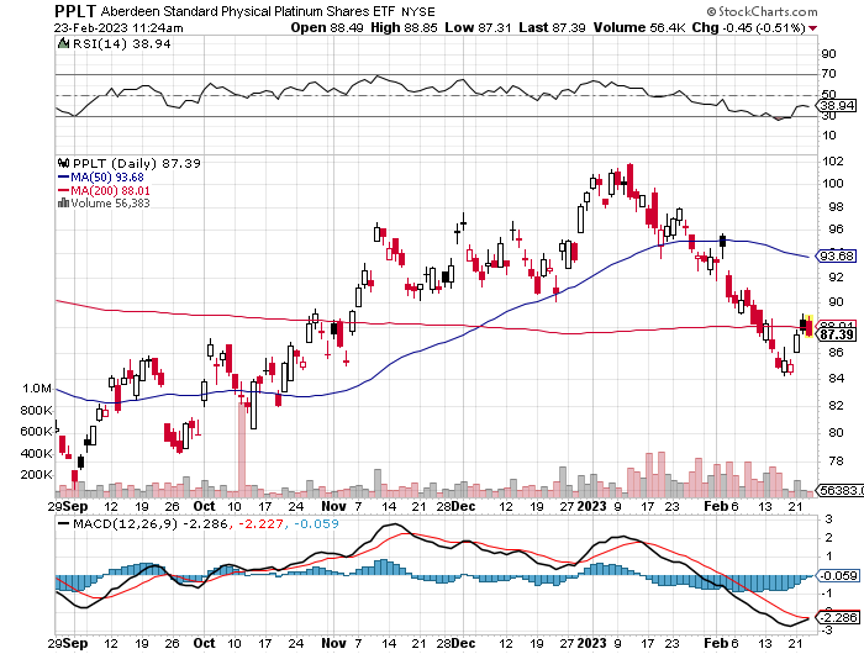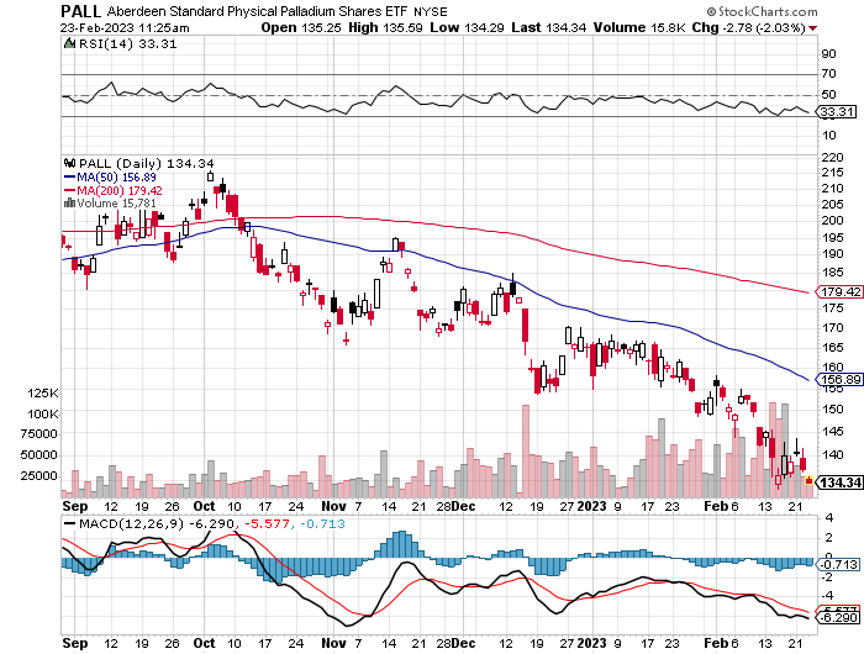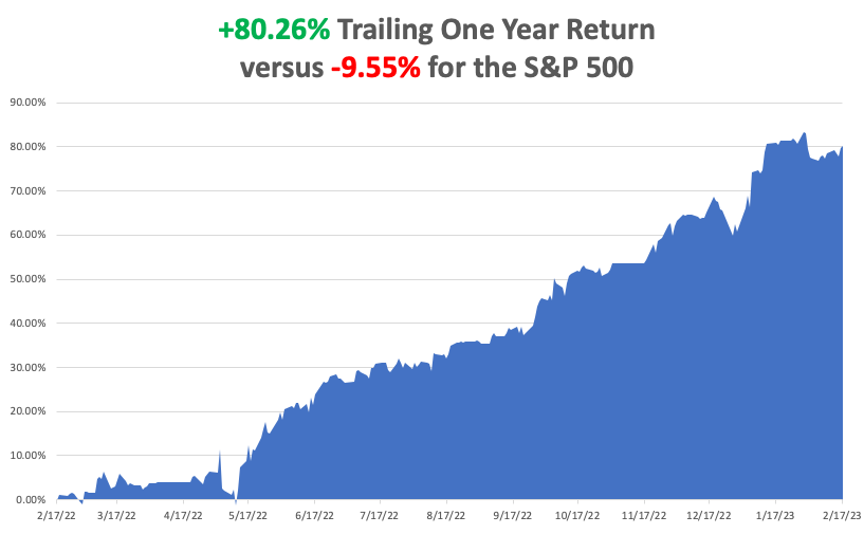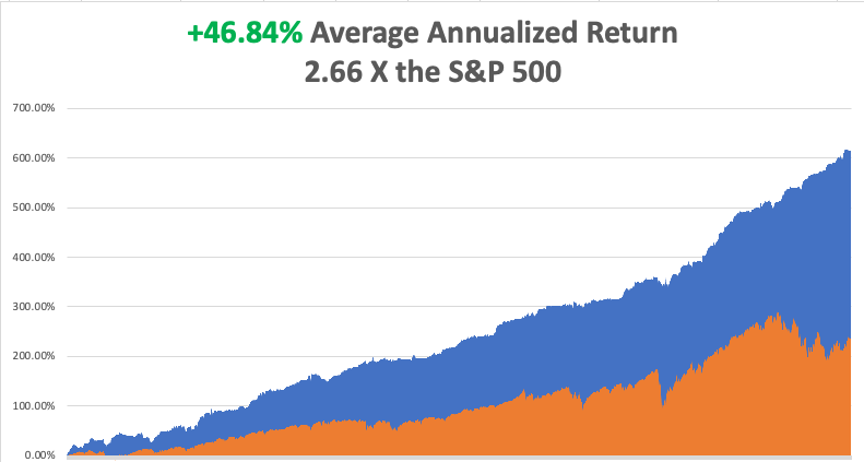Below please find subscribers’ Q&A for the April 26 Mad Hedge Fund Trader Global Strategy Webinar, broadcast from Las Vegas, NV.
Q: Would you start adding to The Russell 2000 (IWM) around here?
A: No, the Russell 2000 is the most sensitive to market action and the most sensitive to an economic downturn, which it seems we have already entered. And you don’t add positions one week into the downturn, you do it like 3-6 months into the downturn. So, I would not touch (IWM) right around here.
Q: Are you buying more First Republic Bank (FRC) down here?
A: No, at this point the stock is a no-go. It is a ripe takeover target for someone, and the risk is, the takeover price is lower than your cost. I don’t understand why First Republic is down this far—like 97% — and when I don't understand things, I stay away. I had never seen a bank go under before that didn’t have bad loans, nor has anyone else. A lot of people were asking if they should double up, we went from $16 to $6 in a day, and the firm answer is that I just don’t know. The fundamentals of the company by no means justify that discount, it must be discounting something terrible that we haven’t heard yet. So I’m going to stay away and look for better trades to do.
Q: I missed the Tesla (TSLA) trade on Friday, should I be looking to buy the dips down here?
A: Yes, I would. I put out a May $110-$120 vertical bull call debit spread on Tesla, which is now only 3 weeks to expiration. Remember, at Tesla’s growth rate, the company is now 12% larger than it was when it hit the $104 bottom in January. I should point out that once our trade alert went out, it literally triggered billions of dollars worth of market action and crushed volatility. It took the implied volatility on Tesla options down 10% on that one day. So, with implied volatility this low, I’m not sure you can get Tesla done at any price that makes sense—but if you can, I’m all for it. As for the short, we’re almost in max profit on our Tesla short position. It’s cratered about $35 since we put it on, so I wouldn’t be chasing that one.
Q: Is there a reason why Freeport McMoRan (FCX) is not progressing upwards?
A: Recession fears—the long-term case for copper is spectacular— I’m looking for $100 in (FCX) a couple years down the road. With the short term, all they see is recession and US government debt default, and as long as those two things are overhanging the market, all of the economically sensitive plays are going to go down. You’re not going to get gains, you’re going to get losses. If you want to know how the debt default is working out, you can write a letter to Kevin McCarthy in Washington DC and ask him what he’s going to do. The stock market doesn’t like it for sure, so I’m inclined to go back to 100% cash and duck that whole cluster.
Q: Can China survive without foreign investment?
A: Yes, with a much lower standard of living, and technology that is greatly lagging behind the US. The Chinese use all the foreign investment going on to upgrade their own technology—it's very common for a Chinese worker to work for an American company for a year and then walk across the street and work for their main Chinese competitor. That is a major means of technology transfer. Without that, they fall way behind, and they know it. You can’t copy your way to leadership, as Japan found out to their great expense in the 1990s. You can add that to the long list of reasons why China will never invade Taiwan. Not only have they cut off their food and energy supply, but also their technology supply.
Q: Would it be safe to deposit my money with Apple (APPL) who’s offering a 4.15% interest rate?
A: Yes, Apple has about $150 billion in cash on the balance sheet to back up any deposit runs. I imagine Apple financially is probably far safer than any small regional bank in the US. But, there are better things to do than Apple, and that’s the good old 90-day US T-bill. That bill never defaults; it’s offering 5.2% — it may even be a little bit higher after May 3 when the Federal Reserve raises interest rates by 25 basis points.
Q: Aren’t earnings coming in better than expected?
A: Yes they are, however, the earnings season was frontloaded with the best-performing sector in the market—i.e. the banks—which you were 100% long of until last week, and the weaker performers are next. That seems to be what the stock market is telling us with the selloff, and of course, the weaker performers are technology stocks. So that's why I piled on the shorts (especially in the Invesco QQQ Trust), that’s why I cut back position sizes, it’s time to take the money and run.
Q: How much longer do you plan to do this?
A: Well Warren Buffet is 92 and he seems to be doing just fine. Joe Biden plans to be President of the United States until he is 86. Work for these men is their lives and they will never quit. The same is true for me. If they can do that, I can certainly run Mad Hedge Fund Trader until I am 92, or for 21 more years. Besides, what else would I do? I’m terrible at golf, I hate pickleball, Bingo is boring and is usually rigged, and all the other stuff that people my age do doesn’t appeal in the least.
Q: Are there ETFs that mirror the rates of 90-day T-bills, or is it better just to buy direct through my broker?
A: It’s always better to buy T-bills directly because your ETF does not work for free. They’re taking out fees somewhere, even if you can’t see them, even if they’re not in the marketing material—nobody works for free; except the US government, it would seem. So buy directly from the US government. If you own the T-bills and your institution goes bankrupt, you can always get your T-bills back in a couple of days. If you own their ETF that mirrors the T-bill, that can become a complete loss and you’ll get tied up in bankruptcy proceedings that last three years (and you may or may not get your money back.) So T-bills directly are the gold standard, I would buy those if you’re looking for a cash alternative.
Q: What about Rivian (RIVN)?
A: It’s red meat in this kind of market—don’t touch it. If the entire car industry is rolling over, including Tesla, don’t expect Rivian to outperform in that situation. As for Amazon (AMZN), like all tech stocks, I’m going to wait for the current selloff to work its way for its system, but then it’s probably a great long term buy and a two-year LEAPS.
Q: What’s your estimate for S&P earnings?
A: I’m at $220 a share which today gives us a multiple of 18.73, which is the middle of the recent range. We may drop a point or two from there, but that’s close enough for the cigar.
Q: Won’t wider credit spreads hurt iShares iBoxx $ High Yield Corporate Bond ETF (HYG)?
A: Yes, for the short term, but you’re being compensated for that by the 8% yield; and you’re buying junk bonds not for where they are for the next month or two, but where they are for the end of the year, which would be at least 10$-15% higher than they are now, so your total “all in” return might be as much as 25%. Not bad.
Q: What’s your thought on the Salesforce (CRM) drop?
A: I’ll buy it in about 3 months, once the next tech washout is finished and they’re throwing these things out with the bathwater.
Q: Do you think iShares 20 Plus Year Treasury Bond ETF (TLT) will trade higher if the market collapses?
A: Yes it will; that is your classic flight to safety out of stocks into bonds. We haven’t seen it in quite a while because both of them have been moving up and down together.
To watch a replay of this webinar with all the charts, bells, whistles, and classic rock music, just log in to www.madhedgefundtrader.com, go to MY ACCOUNT, click on GLOBAL TRADING DISPATCH or TECHNOLOGY LETTER, then WEBINARS, and all the webinars from the last 12 years are there in all their glory.
Good Luck and Stay Healthy.
John Thomas
CEO & Publisher
The Diary of a Mad Hedge Fund Trader
Playing the Penny Slots in Las Vegas is Definitely NOT my Retirement


